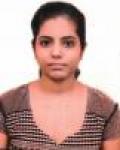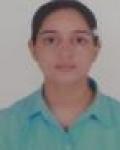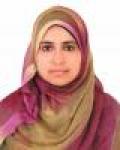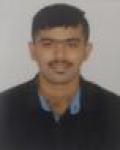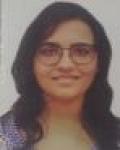Education
The activities of the Education Programme are carried out through three nodal initiatives: Platform for Education Policy, Curriculum Exchange Network, and Research in Critical Areas of Education. In the year 2020-21 programme faculty were involved in developing research papers, developing proposals and supporting students’ doctoral research. The programme also conducted a weekly webinar series, Education after COVID. Some of the research papers that were under preparation include: the need for a paradigm shift for the concept of gifted with a focus on marginalised communities; mapping work/labour among scientists and engineers; education and sustainability; urban dislocations and the politics of educational access in Bengaluru; and representations of ethnic minorities in Indian textbooks.
Click the following to know more about our activities:
| |
Anitha Kurup Professor and Head School: School of Social Sciences Programme: Education Room no: S 05 Tel: 080-2218 5144 Fax: 080-2218 5028 bkanitha@gmail.com Download CV.docx |
Professor
Assistant Professor
Visiting Professor
Assistant Professor
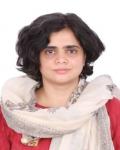
Associate Professor
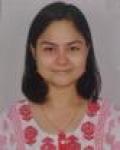
Doctoral Student
Doctoral Student
| Education of the Gifted and Talented (EGT) Education of the Gifted and Talented (EGT) Indian protocols moving beyond psychological measurements to include socio-cultural factors representing urban, rural and Adivasi communities to identify and mentor gifted and talented children in Science, Technology, Engineering and Mathematics (STEM), Humanities, Social Sciences and the Arts have been developed. A total of 2000 teachers- urban and rural from different states were trained. The programme has developed Teacher training manual (English and Kannada), and mentoring frameworks and resources to support the gifted children. |
| Review of Ashram schools of Maharashtra Ashram schools are residential schools in the Adivasi regions that are designed for the purposes of access to education. For the Adivasi communities, separated by distance and social marginalisation, the residential schools hold tremendous importance and promise. The findings highlight the strong imprint of structural issues on the everyday learning especially the triad of health-nutrition-safety affecting the learning and teaching in Ashram schools. The analysis of classroom practices points out a number of pedagogic strategies that work very well in Ashram schools, but also indicates the struggles in English and Mathematics that affect the performance of students. |
| Women in the STEM Disciplines Two national studies- 2010 (With Indian Academy of sciences) and 2019 were carried out on Women in the STEM disciplines across premier institutions, universities and industries. While the first examined why women after a PhD dropped out of science, the second examined how young girls make a career choice, the shifting work-life balance, and the professional experiences in different institutional settings. |
| Vocational Education and Sustainable Livelihoods The skill gaps and the career trajectories of the vocationally trained graduate employees in the private and government public sectors, have been traced. |
| Other Research Activities The team made significant contributions at all levels of education. In particular, the work on school quality, education of the disadvantaged, education of the gifted and women in the STEM disciplines has been recognised nationally and internationally. The contributions in teacher education and advocacy have gained collaborators in various institutions and organisations across the country. The highlight of was two students successfully defending their PhD dissertations. Ms Savitha Suresh Babu and Ms Anupama Mahajan received their degrees. At present nine doctoral students are in the programme. Three of them are writing their chapter drafts (Ms Cheshta Arora, Ms Shaima Amatullah, Mr Subroto Dey); two students are doing field research- Ms Sabna ES and Ms Megha Punia, and four students are developing their proposals and getting formally registered (Ms Shruti Shankar, Ms Souri Majumder, Mr Varun Sudhakaran and Mr Shashank SR). |
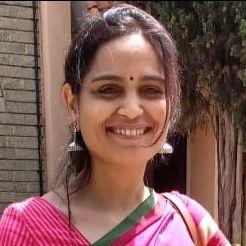
|
Shalini Dixit Assistant Professor, Education Programme Celebrating women without stereotyping https://www.deccanherald.com/opinion/panorama/celebrating-women-without-stereotyping-1092029.html Deccan Herald, 16 March 2022 International Women’s Day is about questioning and protesting the in-built hierarchies and injustice. However, we end up celebrating these inequalities in our celebrations. |
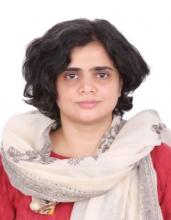
|
Shivali Tukdeo Historical Developments, Influences of International Actors, and Education Reforms in India https://doi.org/10.1093/acrefore/9780190264093.013.426 Oxford Research Encyclopedia of Education Through a network of institutions, the enterprise of postcolonial public education was shaped in the mid-20th century and was deeply entrenched in the politics of class, caste, and gender |

|
Shivali Tukdeo co-authored Associate Professor, Education Programme Spaces of learning and growth: residential schools in Maharashtra – Research highlights. NIAS Research Report No. NIAS/SSC/EDU/U/RR/12/2019 |

|
Shivali Tukdeo, Amar Mali co-authored Urban dislocations and the politics of educational access: Metro colonies, Bengaluru. https://perspectivia.net/receive/pnet_mods_00004216 Working Papers Series Education and the Urban in India Series, Vol 14. Bonn: Max Weber Stiftung. |

|
Shivali Tukdeo Associate Professor, Education Programme Education in times of Covid: Recentering our public schools. The Bastion, 14 April 2020. |

|
Shivali Tukdeo co-authored Associate Professor, Education Programme The long read: On the global relevance of the US elections https://doi.org/10.1080/00131857.2020.1824784 Educational Philosophy and Theory. |

|
Shivali Tukdeo co-authored Associate Professor, Education Programme The China-threat: discourse, trade, and the future of Asia. http://doi.org/10.1080/00131857.2021.1897573 A Symposium. Educational Philosophy and Theory |

|
Shivali Tukdeo Associate Professor, Education Programme India goes to school: Education policy and cultural politics. New Delhi: Springer India. |
| Shalini Dixit Assistant Professor, Education Programme Challenges of nurturing the gifted and talented in developing countries: experiences from rural and urban India. (NIAS Project Report No. NIAS/SSC/EDU/U/PR/18/2019). |
|
| Shalini Dixit, Gargi Sehrawat co-authored Education for sustainability: A study of curriculum and teachers’ understanding. NIAS Research Report NIAS/SSc/EDU/U/RR/21/2020. |
|
| Malavika Kapur Visiting Professor, Education Programme Vineland social maturity scale: An update on administration and scoring (Review Article). Indian Journal of Clinical Psychology 47(1). |
|
| Malavika Kapur Visiting Professor, Education Programme Parents beware of the digital demon. New Delhi: Vitasta Publications. |
|
| Malavika Kapur Visiting Professor, Education Programme It’s okay: to reach out for help. New Delhi: Vitasta Publications, ebook on Amazon kindle |
|
| Jeebanlata Salam co-authored Assistant Professor, Education Programme Draft national education policy, 2019 and jingoistic nationalism as special feature. People’s Chronicle. 27 June 2019. |
|
| Jeebanlata Salam co-authored Assistant Professor, Education Programme Historical developments, policy turns and emerging concerns in vocational and higher education in India: research highlights (NIAS Research Report No. NIAS/SSC/EDU/U/RR/19/2019). |
|
| Jeebanlata Salam Assistant Professor, Education Programme Planning for school re-opening readiness: Approaches during the Covid-19 pandemic The People’s Chronicle, 10 and 11 August 2020. |
|
| Jeebanlata Salam Assistant Professor, Education Programme National Education Policy 2020 and reinventing the possibilities in vocational skill The Sanghai Express, 30 August 2020. |
|
| Jeebanlata Salam Assistant Professor, Education Programme Sustainable development and community aspiration: the case of Chadong. The Sanghai Express, 7 October 2020. |
|
| Jeebanlata Salam Assistant Professor, Education Programme Jesus, markets, state, and the silenced dialogue. The Sanghai Express, January 2021. |
|
| Jeebanlata Salam Assistant Professor, Education Programme What they (don’t) write about Northeast India in School textbooks. The Wire, 28 January 2021. |
|
| Jeebanlata Salam Assistant Professor, Education Programme Social suffering and social justice: A sociological reflection. The New Leam: A Journal of Pedagogy, Aesthetics & Imagination, 18 September 2020. |
|
| Jeebanlata Salam Assistant Professor, Education Programme Vocational skill interventions: Dropout reduction and employability. Journal of Indian Education XLV11I (4). |
|
| Jeebanlata Salam Assistant Professor, Education Programme Social exclusion and special educational interventions among Muslims of Bihar. Journal of Educational Planning and Administration 34(3). |
|
| |
Anitha Kurup co-authored Professor and Head, Education Programme Capturing diversity: a comprehensive report on women in science and engineering in India. NIAS Research Report No. NIAS/SSC/EDU/U/RR/12/2019 |
| |
Anitha Kurup co-authored Professor and Head, Education Programme Challenges of nurturing the gifted and talented in developing countries: experiences from rural and urban India. NIAS Project Report No. NIAS/SSC/EDU/U/PR/18/2019) |
| |
Anitha Kurup co-authored Professor and Head, Education Programme Historical developments, policy turns and emerging concerns in vocational and higher education in India: research highlights NIAS Research Report No. NIAS/SSC/EDU/U/RR/19/2019 |
| |
Anitha Kurup Professor and Head, Education Programme Math Curricular Framework for the Education of the Gifted and Talented. NIAS Research Report NIAS/SSc/EDU/U/RR/22/2020. |
| |
Anitha Kurup co-authored Professor and Head, Education Programme Measuring access, quality, and relevance in higher education Economic and Political Weekly 55(24): 34-38. |
| |
Anitha Kurup Professor and Head, Education Programme Challenges to identify and mentor gifted children in developing countries: the Indian experience. Current Science 120(3): 472-478. |
| Malavika Kapur Visiting Professor, Education Programme Balavana Patashale (a bilingual home study kit for primary school children). Bangalore: Balavana Foundation. |
|
| Jeebanlata Salam Assistant Professor, Education Programme Everyday violence, schooling and mediating institutions in northeast India In: Education and the Public Sphere: Exploring the Structures of Mediation in Post-Colonial India edited by G. S. Suresh Babu. New York: Routledge, pp.175-187. |
|

|
Shruti Shankar PhD Scholar, Education Programme Let’s get moving https://www.teacherplus.org/lets-get-moving/ Teacher Plus, October 2021 The article examines the role of the education system in introducing children to a sedentary lifestyle and building tolerance for it among them. It also explores some ideas to remedy the situation and make health a greater priority in the education system. |
| |
Malavika Kapur Visiting Professor, Education Programme Psychological perspectives on childcare in Indian indigenous health systems http://eprints.nias.res.in/797/ New Delhi: Springer India, 2016 |
| |
Malavika Kapur Visiting Professor, Education Programme What's the Hurry? Let Children be Children https://www.amazon.in/Whats-Hurry-Let-Children-Children/dp/9386473305/ref=sr_1_2/260-5084081-4272248?s=books&ie=UTF8&qid=1534398046&sr=1-2&refinement… New Delhi: Vitasta Publishing, 2018 |
| |
Malavika Kapur Visiting Professor, Education Programme CTET Preparation and Practice: Child Development and Pedagogy (Papers I & II) https://india.oup.com/product/ctet-preparation-and-practice-child-development-and-pedagogy-9780199486786 New Delhi: Oxford University Press, 2019 |
| Malavika Kapur Visiting Professor, Education Programme Balavana Patashale: A Bilingual Primer for Self-Study for Primary School Tribal, Rural and Government School Children in Bangalore Bangalore: Balavana Foundation, 2020 Balavana Patashale is the first ever home /self study kit containing a Bilingual Primer in Kannada and English ( may be translated into all Indian languages) . It has 10 language lessons, graded maths lessons, 8 bilingual nursery rhymes to promote singing and dancing and a section to initiate varied child centred activities. Two story books are provided to encourage reading. ALL THE activities NOTABLY cover the NCERT syllabus from class 1-5.in |
|
| Malavika Kapur Visiting Professor, Education Programme It's Okay: To Reach Out For Help https://www.amazon.in/Its-Okay-Reach-Out-Help-ebook/dp/B08CZPSRKC New Delhi: Vitasta Publishing: 2020 Corona Virus has brought the whole world to a standstill. Months of lockdown has taken a toll on both economic and psychological well-being of people. Even if we are able to overcome the economic losses with our efforts over a period of time, psychological effects if not treated on time, can prove to be devastating. |
|
| Malavika Kapur Visiting Professor, Education Programme Parents Beware of Digital Demons https://www.vitastapublishing.com/store/new-arrivals/parents-beware-of-the-digital-demon-detail New Delhi: Vistasta Publications, Pvt. Ltd., 2021 Televisions, smart phones, internet, social media are all horribly addictive and the Covid pandemic has doubled the online presence of children. The WHO says, ‘Digital disorders are hugely under-recognised in India’. According to Rajesh Sagar of AIIMS Delhi, ‘It is fast emerging as India’s newest lifestyle disease’. Digital games, advertisements and reality shows are dangerous for a growing mind. The Government of India has banned online games like PUBG, Blue Whale, sites like Tik Tok. The government of Karnataka has even banned online classes for children up to class five. This book is an attempt to flag the dangers and provide some suggestions on how to combat digital dependence. |
|
| Jeebanlata Salam co-authored Assistant Professor, Education Programme Human Rights Investigation and Fact Finding Techniques https://hre.ohchr.org/hret/InstitutionDetail.aspx?INSKey=413&Lng=en New Delhi: Indian Social Institute, 2004 |
|
| Jeebanlata Salam Assistant Professor, Education Programme Social Exclusion and Education https://books.google.co.in/books/about/Social_Exclusion_and_Education.html?id=LPmbAAAAMAAJ&redir_esc=y New Delhi: Indian Social Institute, 2004 |
|
| |
Jeebanlata Salam Assistant Professor, Education Programme State, Civil Society and Right to Education https://www.rawatbooks.com/education/state-civil-society-and-right-to-education Jaipur: Rawat Publishers, 2013 |
| |
Shalini Dixit Assistant Professor, Education Programme The Psychology of Teaching Critical History https://www.routledge.com/The-Psychology-of-Teaching-Critical-History/Dixit/p/book/9781138342729 Routeledge, July 23, 2021 |
| |
Shivali Tukdeo Associate Professor, Education Programme India Goes to School: Education Policy and Cultural Politics https://www.springer.com/gp/book/9788132239550#aboutBook Springer, 2019 |
| |
Anitha Kurup co-authored Professor and Head, Education Programme Status of Rural Women in Karnataka http://ec2-3-108-111-222.ap-south-1.compute.amazonaws.com/niastestweb/sites/default/files/2022-03/Status%20of%20Rural%20Women%20in%20Karnataka.pdf Bangalore: NIAS Books and Special Publications No. SP4, 2006 |
| |
Anitha Kurup Professor and Head, Education Programme Village, Caste and Education https://books.google.co.in/books/about/Village_Caste_and_Education.html?id=9_GeAAAAMAAJ&redir_esc=y Jaipur: Rawat Publications, 2000 |
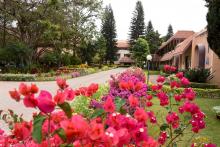
|
NIAS Wednesday Discussion A Long Road to Recovery: Re-opening of Schools and Equitable Education Shivali Tukdeo , Associate Professor, Education Programme, NIAS 2 March 2022 |

|
NIAS Wednesday Discussion A Long Road to Recovery: Re-opening of Schools and Equitable Education Dr Shivali Tukdeo, Associate Professor, Education Programme Education Programme Lecture Hall, NIAS 2 March 2022 |
The Programme continued the weekly webinar series Education after COVID, where 20 lectures were organised. Dr. Anitha Kurup initiated a collaboration with Vidyashilp University to set up a Centre for Learning Sciences which will be a laboratory in campus that will develop pedagogic practices, innovative assessments systems and faculty development in the campus. Driven by data generated by student learning outcomes, teaching learning practices, it will set up a benchmark for other universities.
The programme completed two reports that were part of our research: In December 2020, Dr Shalini Dixit and Ms Gargi Sehrawat completed a report entitled ‘Education for Sustainability: A Study of Curriculum and Teachers’. In April 2021, Dr Shivali Tukdeo completed her inter-institutional collaborative research on ‘Education and the Urban’ and her research paper with Mr Amar Mali entitled ‘Urban Dislocations and the Politics of Educational Access: Metro Colonies, Bengaluru’ was published.
Our on-going research projects include Vocational Skill Education Policy Research undertaken by Dr Jeebanlata Salam, paradigm shift in the thinking of giftedness among rural Students by Dr. Anitha Kurup, transformation in Indian higher education by Dr. Shivali Tukdeo and collective memory research by Dr. Shalini Dixit.

